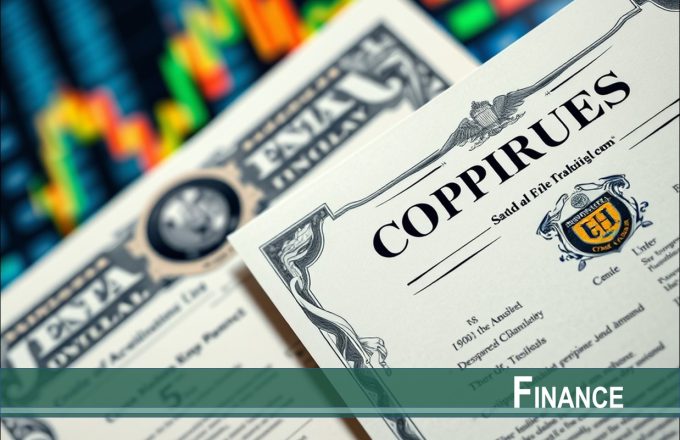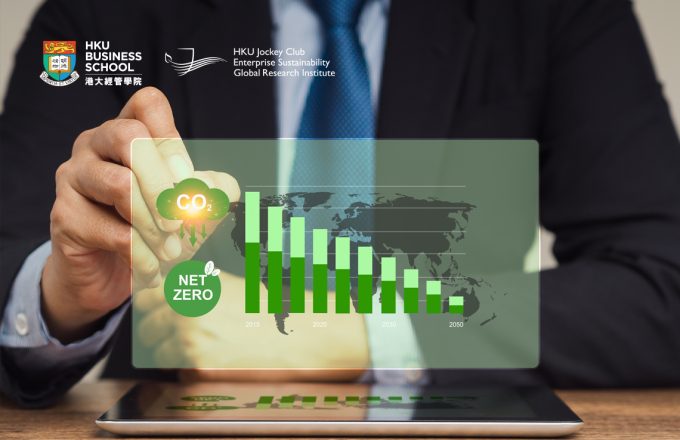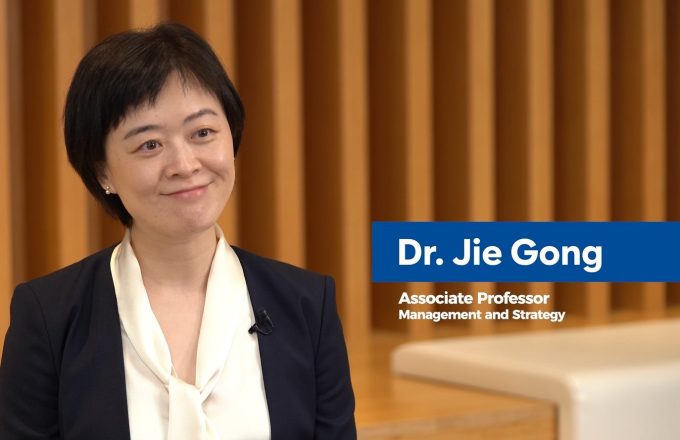Latest Research Publications
Research Insights
Global Scholars
Impact Stories
HKEJ Column
FT Chinese Column
In the Media
Mutual funds investing in illiquid corporate bonds actively manage Treasury positions to buffer redemption shocks. This liquidity management practice can transmit non-fundamental fund flow shocks onto Treasuries, generating excess return volatility. Consistent with this hypothesis, we find that Treasury excess return volatility is positively associated with bond fund ownership, and this pattern is more pronounced among funds conducting intensive liquidity management. Causal evidence is provided by exploiting the U.S. Securities and Exchange Commission’s 2017 Liquidity Risk Management Rule. Evidence also suggests that the COVID-19 Treasury market turmoil was attributed to intensified liquidity management, an unintended consequence of the 2017 Liquidity Risk Management Rule.
February 2025
The Review of Financial Studies
The Interactions of Customer Reviews and Price and Their Dual Roles in Conveying Quality Information
Customer reviews help communicate product information, but their effectiveness may suffer from selection bias (i.e., depending on factors, such as the individual experience and price, not all consumers may voluntarily write reviews). Consequently, a seller may have to resort to additional means (e.g., signaling through price in the context of an experience good) to convey its quality. This paper develops an analytical model to investigate the interaction of customer reviews and price with the presence of selection bias in marketing an experience good with uncertain quality to consumers. Our analysis reveals the dual roles played by both customer reviews and price in communicating quality information. On one hand, customer reviews may either directly convey product information with unbiased distribution of reviews or facilitate price signaling when reviews are biased because of selection. On the other hand, price may be adjusted to mitigate the selection bias of reviews to make them more informative, and it may also signal quality directly in the presence of review bias. As a result, we show that bias in reviews may actually benefit consumers without compromising information communication as the incentive to reduce review selection bias makes it credible and profitable for the high-quality seller to signal its type by undercutting the price that would be set if it is of low quality. We then extend our analysis to examine the information, profits, and welfare impacts of several important design elements of a review system as well as the impact of consumers’ aversion to risk. Finally, the implications of our findings on the management of user-generated content and pricing are discussed.
January-February 2025
Marketing Science
Short selling regulation has been a longstanding topic of debate in financial markets, particularly during times of crisis. While proponents argue that short selling aids in price discovery and market efficiency, critics raise concerns about manipulative short selling practices that can destabilize markets. This paper presents a theoretical model to analyze the impact of short selling, specifically manipulative short selling (MSS), on bank runs and efficiency. The model demonstrates that MSS can emerge as an equilibrium outcome driven by uninformed speculators seeking to profit from artificially depressing stock prices. The prevalence of MSS is influenced by the level of informed trading and coordination friction among creditors. We find that short selling bans can enhance welfare by mitigating the negative effects of MSS, particularly in scenarios with high coordination frictions. We also provide policy and empirical implications.
January 2025
Journal of Economic Theory
Key Takeaways Net-zero portfolios (NZPs), managing over $130 trillion USD in assets, align financial performance with climate goals. These portfolios reward firms that actively reduce emissions while excluding those lagging behind, driving market incentives for decarbonization.
The study introduces distance to exit (DTE), a forward-looking metric that measures a firm’s risk of exclusion from NZPs based on its carbon footprint and decarbonization efforts.
Firms with higher DTEs—seen as safer from exclusion—tend to have higher valuations but lower expected returns, highlighting the market’s pricing of carbon-transition risks.
DTE serves as both a risk measure and a catalyst for action, incentivizing firms to accelerate decarbonization to remain in NZPs, while enabling portfolios to achieve up to 95% reductions in carbon intensity without sacrificing sector diversification. Source Publication:
10 Jan 2025
Research
Key Takeaways The agricultural export value of Brazil has quadrupled over the last two decades due to rising global demand.
Brazil’s agricultural export boom drives deforestation: between 1997 and 2019, trade-induced agricultural expansion led to the loss of 3.6 million hectares of forest.
Trade-induced deforestation causes severe health consequences: it results in over 700,000 premature deaths, primarily from cardio-respiratory diseases linked to pollution from deforestation in upwind areas.
The economic cost of these deaths is estimated at $513 billion USD—about 18% of Brazil’s total agricultural export value during the same period.
These findings highlight the negative health impacts of trade-induced deforestation and the resulting regional inequality, because mortality costs and economic benefits are not always shared by the same populations. Source Publication:
8 Jan 2025
Research
Key Takeaways This study develops a theoretical framework to explore how carbon taxes and financial market tools (e.g., sustainability-linked loans and bonds) interact in reducing carbon emissions.
Carbon taxes remain the most effective tool for achieving emission reductions and increasing welfare but are often politically constrained.
Carbon-contingent financing provides an alternative incentive for standard agents to adopt green technologies, but its effectiveness depends on the financial resources of environmentally motivated agents who are funding the transition.
Although carbon taxes and market-based solutions can coexist, carbon-contingent financing may undermine political support for taxes, potentially reducing their overall effectiveness in addressing emissions.
The model’s predictions emphasize the need for a balanced climate strategy, whereby carbon taxes and financial market solutions complement each other by targeting different regions or sectors with distinct characteristics. Source Publication:
5 Jan 2025
Research
While computer languages may sound alien to economics, I aim to showcase that good programming skills are conducive not limited to economic research, it can also open up endless career possibilities for you in the business world.
31 Jan 2022
Economics
As a teacher, I will push myself to understand the expectations of local employers' and the market dynamics of Hong Kong.
18 Jan 2022
Finance
As a science person, I am impressed by our students' strong business acumen. But as a teacher, other than teaching them how to use quantitative tools to make scientific claims, I also hope that I can encourage them to continue to stay inquisitive about the world and apply their classroom knowledge for the betterment of the society.
5 Jan 2022
Marketing
At the beginning of 2022, high inflation was the top priority for the U.S. economy. By the second quarter of 2025, although inflation had significantly decreased, it remained slightly above the Federal Reserve's long-term target of 2%. The Federal Open Market Committee has been implementing various measures aimed at bringing inflation back down to the 2% long-term target. However, recent policy changes by the U.S. government have added uncertainty to the economic outlook and the formulation of monetary policy. This article provides a brief analysis of the U.S. economic conditions and the direction of monetary policy in the second quarter of 2025.
16 Jul 2025
Faculty
Is America's 'One Big Beautiful Bill Act' a masterpiece or a misstep?According to Dr Y.F. Luk, Honorary Associate Professor at HKU Business School, this new policy comes at a steep price. He explained that while the 870-page bill makes tax cuts permanent, it pays for them by slashing vital medical and food subsidies.
9 Jul 2024
Faculty
In recent years, the global financial markets have been turbulent, with Bitcoin’s price fluctuations resembling a rollercoaster—attracting investors in pursuit of high returns. However, in this vast digital ocean, most enterprises and investors are not seeking adventure, but rather a safe haven for investment.
2 Jul 2025
Faculty
When institutional investors cast their votes against company directors, they increasingly do something that was once rare: they explain why. These "voting rationales" — brief written explanations accompanying dissenting votes — are emerging as a surprisingly effective tool for driving corporate governance reform, according to new research analyzing nearly 800,000 such disclosures.
11 Jul 2025
In the era of online shopping, the so-called "no discounts for old customers or dogs" policy often leaves loyal consumers feeling helpless. Many e-commerce platforms implement a "one person, one price" strategy, and even tailor prices based on users' purchasing habits and browsing histories, causing different consumers to pay different prices for the same product. In addition, airline ticket prices fluctuate constantly, with the phenomenon of "the more you search, the more expensive it gets" becoming the norm.
3 Jul 2025
In today's highly competitive business environment, innovative collaboration has become an important way for companies to gain an advantage. In innovation-driven partnerships, large enterprises often collaborate with small technology firms, integrating the latter's core technologies into their own products to drive product innovation and expand market share. To secure collaboration opportunities, small enterprises also need to demonstrate to potential partners the application potential and market prospects of their technology integration.
13 Jun 2025
At the beginning of 2022, high inflation was the top priority for the U.S. economy. By the second quarter of 2025, although inflation had significantly decreased, it remained slightly above the Federal Reserve's long-term target of 2%. The Federal Open Market Committee has been implementing various measures aimed at bringing inflation back down to the 2% long-term target. However, recent policy changes by the U.S. government have added uncertainty to the economic outlook and the formulation of monetary policy. This article provides a brief analysis of the U.S. economic conditions and the direction of monetary policy in the second quarter of 2025.
16 Jul 2025
Faculty
In a recent interview with Wen Wei Po, Prof. Michael B. Wong, Assistant Professor in Economics, Management and Strategy at HKU Business School, suggested that improving the quality of Home Ownership Scheme (HOS) flats could provide a key incentive for property ownership. He argued that the convergence in quality between public rental housing (PRH) and HOS flats is a major policy design flaw. As PRH is intended to provide basic shelter for low-income groups, HOS flats should be of superior quality to attract tenants to move up the housing ladder.
15 Jul 2025
Faculty
The pressure on Hong Kong’s catering industry is unprecedented: rising rents, wages, and ingredient costs are squeezing profit margins, while increasing labor costs make it difficult to recruit and retain staff. Consumer spending is shifting northwards, and tourist spending has yet to fully recover. The entry of mainland brands has intensified competition. The macroeconomic outlook is uncertain, and consumer preferences are changing, with people becoming more frugal. In an effort to turn things around, some groups have launched promotions at several of their upscale restaurants.
15 Jul 2025
Faculty































